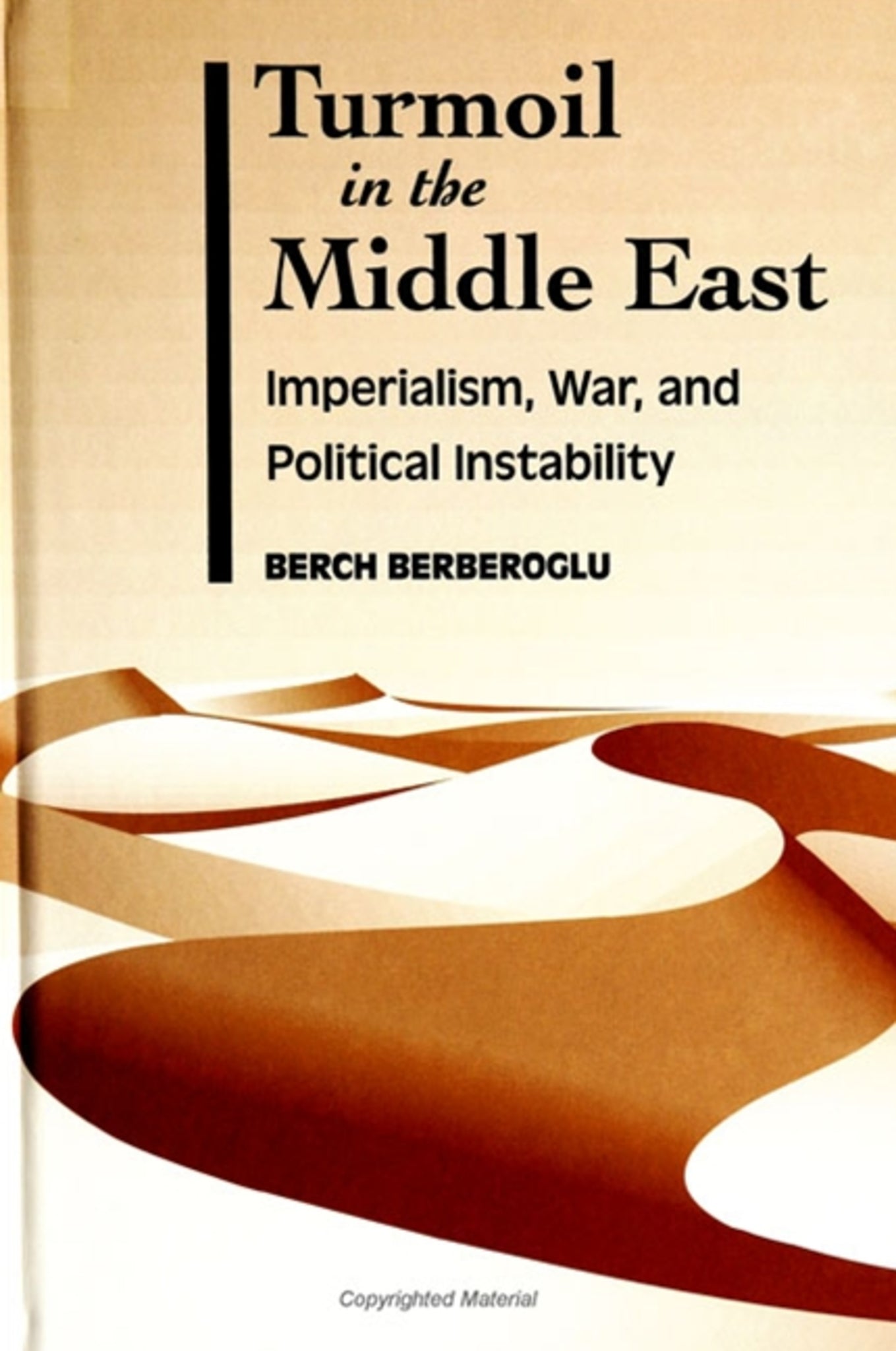We're sorry. An error has occurred
Please cancel or retry.
Turmoil in the Middle East

Some error occured while loading the Quick View. Please close the Quick View and try reloading the page.
Couldn't load pickup availability
- Format:
-
04 November 1999

Berch Berberoglu examines the dynamic social forces and political turmoil that plague the contemporary Middle East.
Turmoil in the Middle East highlights the impact of imperialism, war, and political turmoil in the Middle East throughout the course of the twentieth-century-from the devastation of the First World War through the many crises and conflicts that have led to cycles of war, uprisings, coups, revolts, and revolutions. It focuses on the internal contradictions of Middle Eastern states driven by the dynamics of class conflict and class struggle in various realms of society and social relations. Berberoglu examines the political economy of long-embedded conflicts and crises in the Middle East, paying special attention to the role of powerful, external forces stemming from Western imperialism and led by Britain, France, and later the United States.


"Despite the difficult, controversial, and complex issues, Berberoglu succeeds in presenting an understandable overview of an enormously critical set of issues. Turmoil in the Middle East is innovative because it so successfully guides the discussion away from the 'great man' and 'evil empire' view of history and politics. It offers a powerful sociological analysis that keeps us focused on the social forces that underpin historical events." — Judy Aulette, University of North Carolina, Charlotte
"Berberoglu's work offers a comprehensive and analytically sophisticated overview of the contemporary political history of the Middle East. It is not only timely and significant in and of itself, it is (and should become increasingly) central to social scientific analyses of ethnicity, political sociology, social movements, and international relations. Berberoglu's analysis is often extremely insightful. In particular, his discussions of the role of the collapse of the Ottoman Empire, of the parallels between the various countries he examines, and of the Gulf War are especially important." — Martin Orr, Boise State University
Preface
Acknowledgments
Introduction
1
The Impact of Western Imperialism on the Middle East
2
Nationalism, Ethnic Conflict, and Political Turmoil in the Middle East in the Early Twentieth Century
3
Imperialism and the Resurgence of Nationalism in the Middle East: Turkey and Egypt
4
Imperialism and the Resurgence of Nationalism in the Middle East: Syria and Iraq
5
The National Question in the Middle East: The Palestinian and Kurdish Struggles for National Self-Determination
6
The Arab-Israeli Conflict: War and Political Turmoil in the Middle East
7
The Gulf War: Interimperialist Rivalry for Control of Oil in the Middle East
8
The Post-Cold War "New World Order" and the Prospects for Peace in the Middle East
Notes
Bibliography
About the Author
Index



